Project Ilica is a collaborative, local craft production initiative, realized to recover the disappearing traditional crafts and local economies in Zagreb’s main street Ilica, through establishing an educational co-creation model based on knowledge and skills exchange between craftspeople, designers and local residents. Participants are invited to learn and contribute through various activities while co-creating with local craftspeople using solely local services and their production processes. By active participation local residents or local designers become nanotourists in their own street or city that results in novel products, services and local economy while recreating Ilica street identity.
Project was concieved by Art and Design Collective Oaza, as a reaction to their immediate environment. It was kick-started in 2014. as one of the case-studies within nanotourism - a creative critique to the current environmental, social and economic downsides of conventional tourism initiated by Dekleva Gregorič Architects during BIO50.
The project was developed through several phases. The first research phase included mapping the street potentials: remaining craftspeople, their hidden knowledge and intellectual capital, material resources, production networks and distribution channels. The research led to development of a new educational model Old School Ilica, through which all parties sharing geolocation (craftspeople, designers, local residents) can benefit using their own knowledge as a currency of exchange, through various formats of open days, workshops, lectures, events, exhibitions etc. At a broader level, mapping marked the beginning of research of the impact of bottom-up strategies on the economy of Ilica Street, and consequently on the sustainability of its identity. The results were recorded in the publication Project Ilica VOL 1: Register of Knowledge Holders. In addition to bringing a kind of archive of Ilica craftspeople, the Register also proposes a model of self-sustainable development of the local community through elements of social design. The local initiative Old School Ilica and the methodology resulting from the multi-year work process, created the preconditions for the formation of an international MADE IN platform (madein-platform.com) active on a European level, which tests the proposed methodologies of Projekt Ilica on various scales and levels.
The project promotes the following ideas: 1) Community building through supporting local crafts production and returns of small shops that enable everyday city living; 2) Promotion of learning skills for everyday life and broadening the definition of crafts in order to encourage contemporary urban residents to start building local networking productions relying on their own specific knowledge capacities 3) Decentralization of production by promotion of knowledge exchange and reverting the power from mass industry back to the individual knowledge holders. The project resulted in a methodology that uses tools of design to influence self-sustainability of local community, establish the continuity of local identity and thus create new values for citizens. As such, with smart modifications responding to various contexts, the methodology can be applied to other situations.
"Project Ilica is a collaborative initiative that addresses the disappearing traditional crafts and shops in Zagreb’s main street Ilica. We were impressed with the deep reading of a street’s life - and the dedication to support local production and learning communities. The Project Ilica offers rich documentation of what shops can contain in terms of knowledge and skill, while also being an inspiring attempt to breathe new life into this multifaceted world of production. In the project, Art and Design Collective Oaza establishes a co-creation model where knowledge and skills are exchanged between craftspeople, designers and local residents. Thus, the project shows that we can collectively act to challenge the standard model of chain shops and support local craftsmanship, contributing to the diversity and authenticity of urban life."
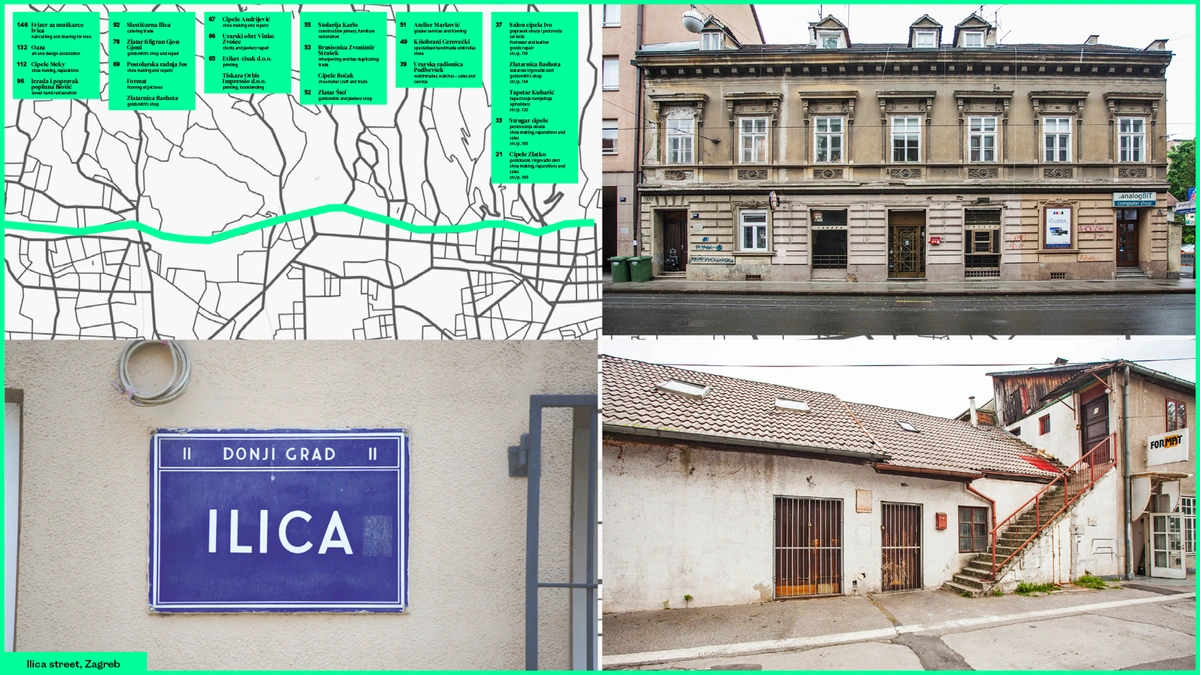
History of the site—Ilica. One of Zagreb’s urban sight; a street with an impressive length crossing and cutting the city into the north and south part. Ilica is a spatial and public phenomenon that tracks history and the changing presence and role in the city in its central and peripheral conditions. It embraces reality; it is also the non-curated reality poster of the city itself.
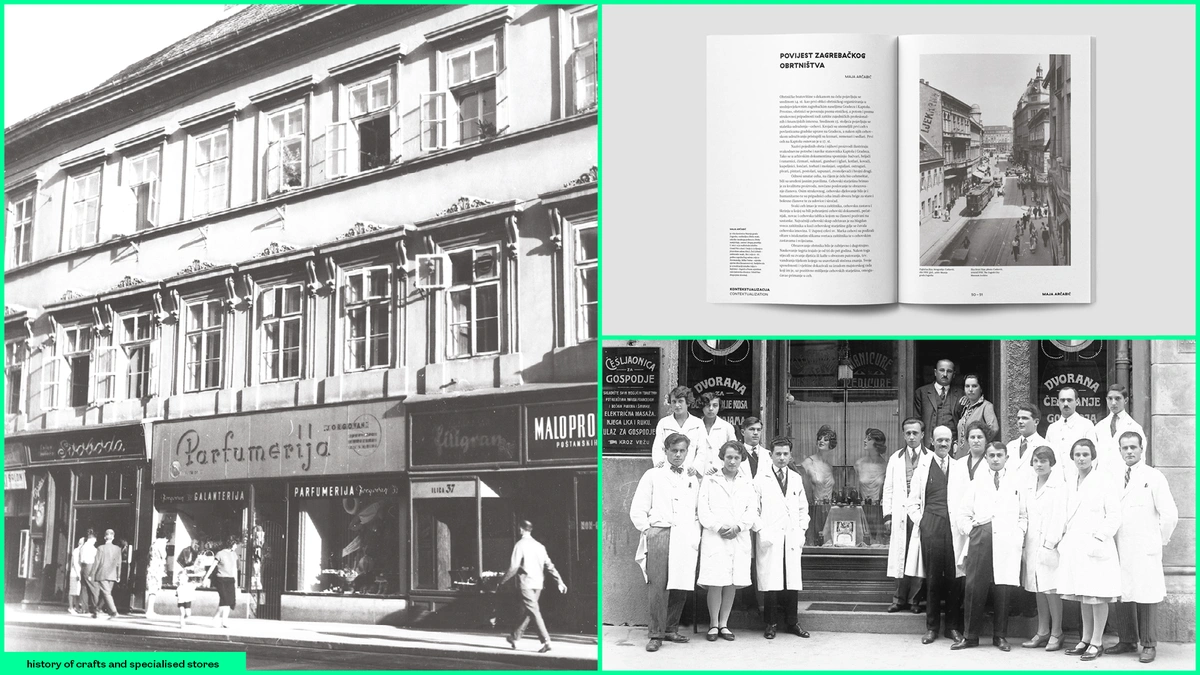
History of the crafts—History of the crafts in Zagreb is an important segment in studying its social and economic history. The legacies of the crafts, of immense material and cultural value, kept in institutions and private collections, are an acknowledgement of Zagreb’s urban tradition and the high level of quality of the products and services of its craftspeople.
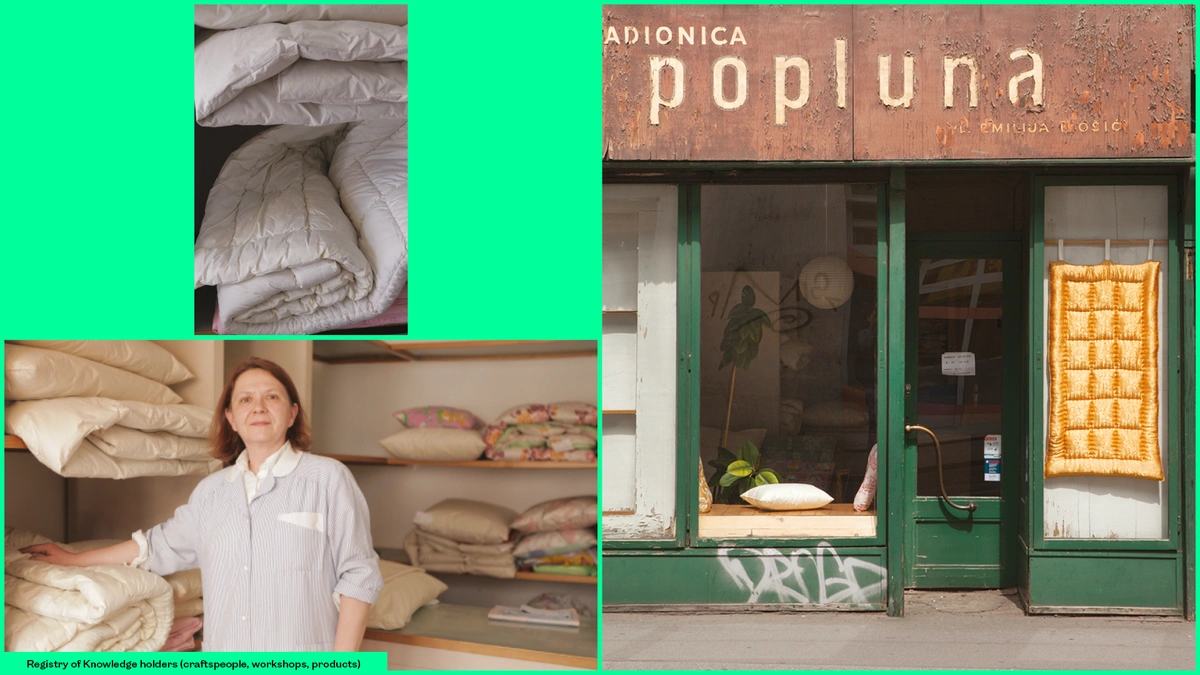
Registry of Knowledge holders—Covers the context of Ilica street 50 to 150, where a significant number of traditional crafts and specialised shops are located. The existence of the detected businesses is uncertain due to a number of social circumstances in the past 20 years. The purpose of the presented Registry is to record and create a database of crafts and specialised shops and affirm them through a series of systematic actions.
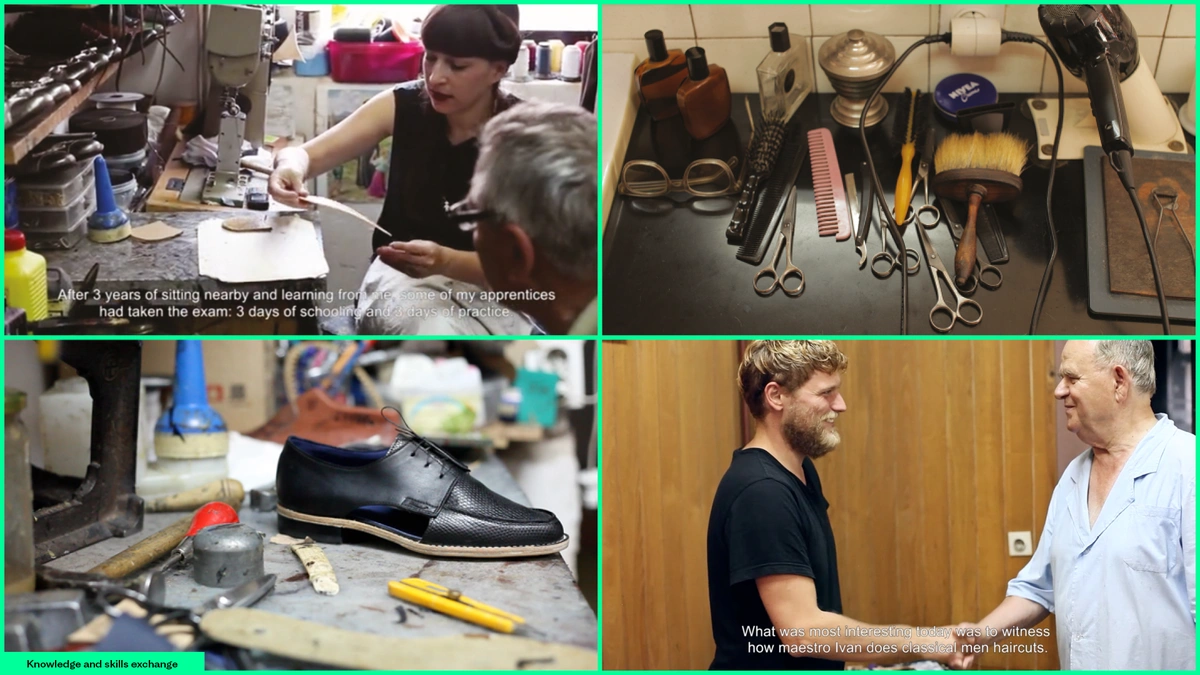
Old School skill exchange—Workshops and test actions realised through collaboration between Art and Design Collective Oaza and local craftspeople, assuming knowledge and skills exchange between knowledge holders (craftspeople and their manufacturing workshops), designers (facilitators and mediators) and various other stakeholders (local residents, interested general public). Development of products contributed to the strengthening of the micro-economy of the street.
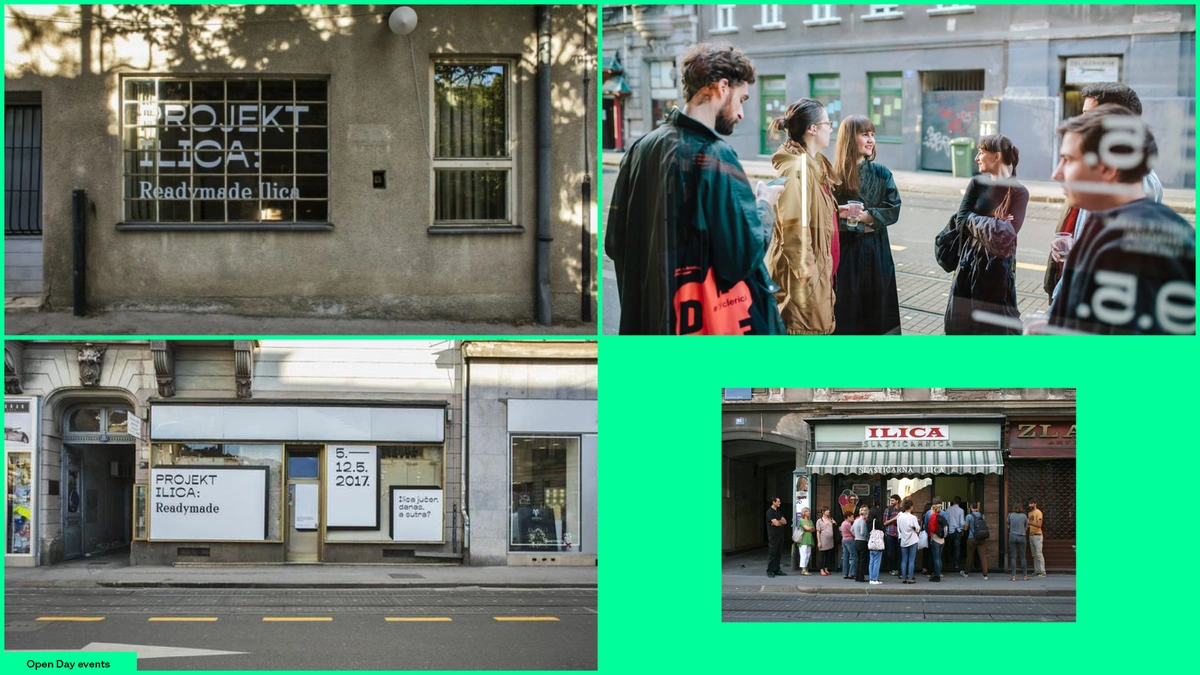
Series of public facing events—Organised to raise awareness of the potentials that this newly established local craft production initiative contains, bringing together all parties.
After a significant number of collaborations in the field of design, six freelance artists—Nina Bačun, Ivana Borovnjak, Roberta Bratović, Tina Ivezić, Maja Kolar and Maša Poljanec—first established the Oaza collective spontaneously in 2013 and since 2014 it is formally active as Art and Design Collective Oaza. The authors share a reflective approach to work, as well as continuous engagement on projects commissioned by the independent cultural scene, operating within interdisciplinary teams.
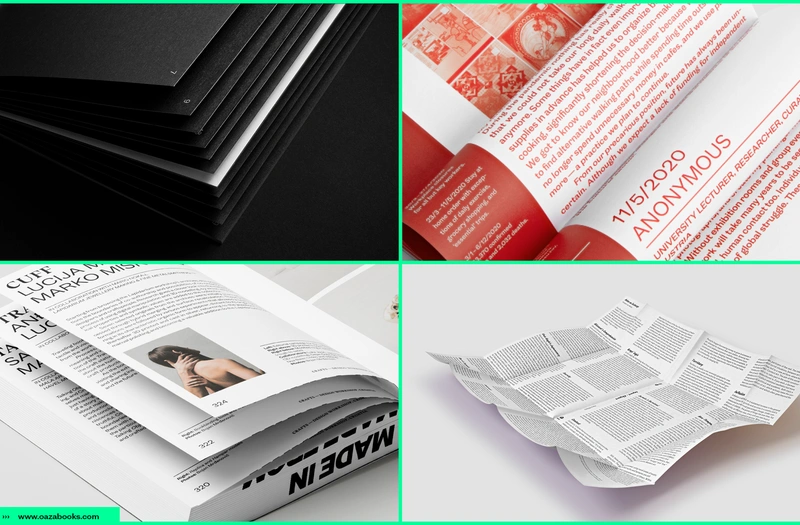
Publishing
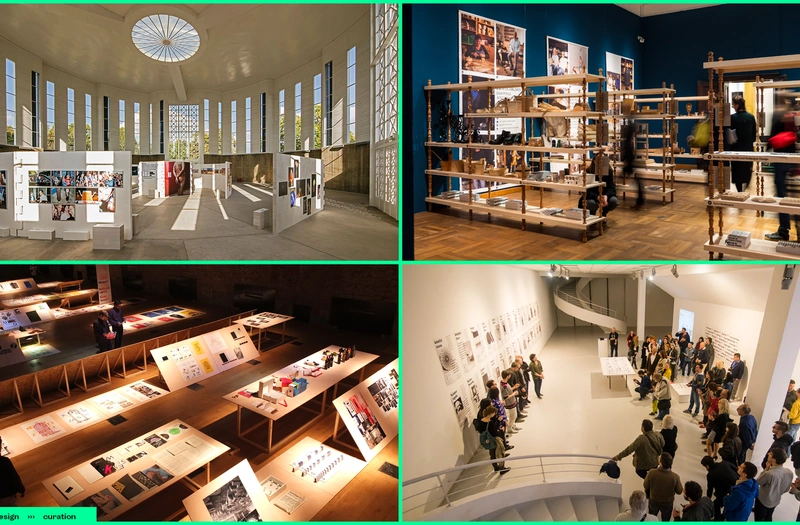
Exhibition design
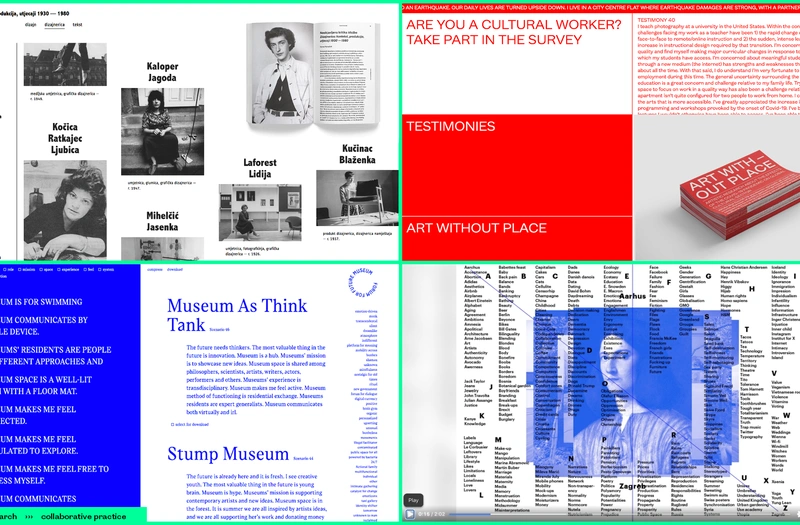
Design research
